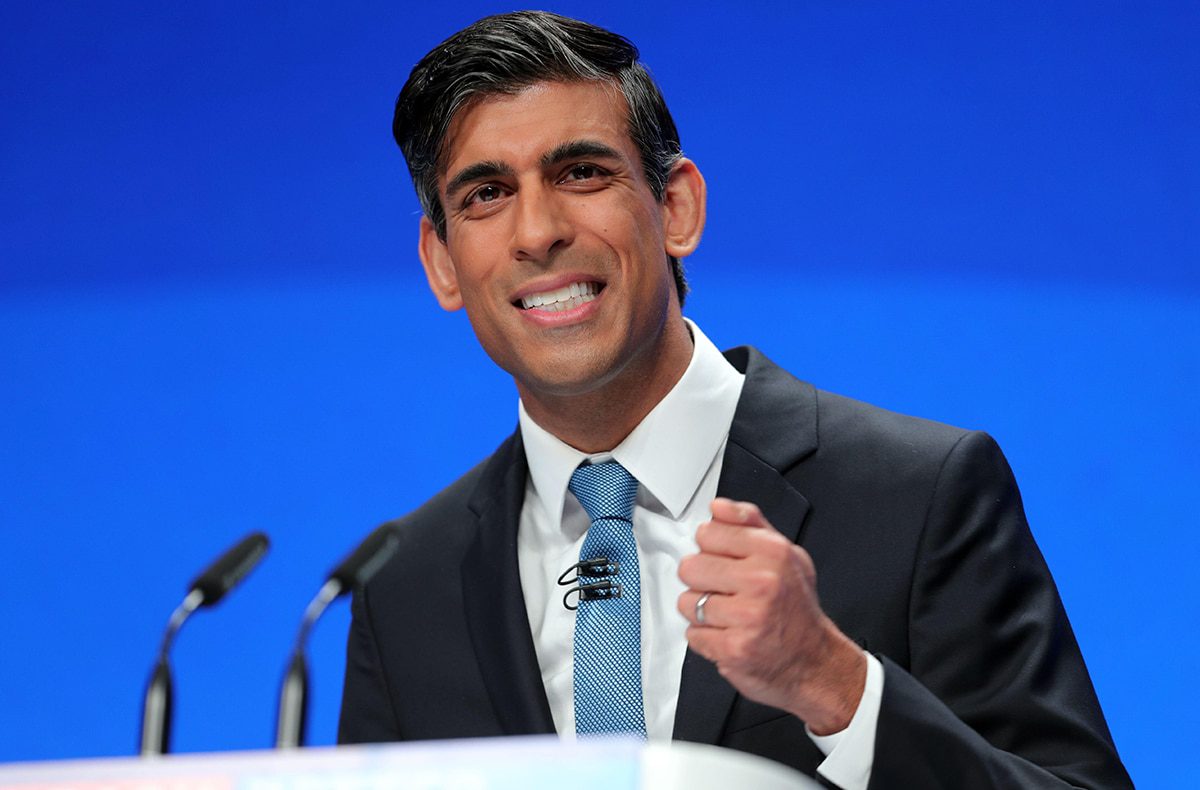
Rishi Sunak should be a symbol of Britain’s success as a functioning, multicultural society. The new Prime Minister is the first non-white incumbent of the highest office in the United Kingdom. It is even more remarkable that he leads the Conservative Party, a political group that has been shifting rightwards for more than a decade.
The elevation of Sunak, with his African and Punjabi heritage, should be a cause for celebration. Yet his installation in 10 Downing Street has little similarity to Barak Obama’s election as President of the United States. Obama rallied a nation around him. Sunak is the least objectionable candidate among 357 Tory MPs. Only last month, the 42-year-old lost a leadership contest against the ill-fated Liz Truss, whose tenure at the helm of the nation ended in ignominy after 44 days. Truss was elected by paid-up party members across the country. The rank-and-file rejected Sunak, who received 42.6% of the vote to his rival’s 57.4%.
The Parliamentary Conservatives did not want another poll of the membership. Other potential candidates had a greater appeal for Tory foot soldiers. Boris Johnson, the former Prime Minister who exited in disgrace in August, would likely have swept to victory if it was left to the members. They are predominantly white, male and ageing. Conservative party members are more likely to be male, white British, a Leave voter, middle class and living in the south of England than the general population. Multiculturalism is not a concept that appeals to this demographic.
Fear of immigration was one of the most significant factors in the most cataclysmic event of post-war British politics: Brexit. The migrant crisis of 2015, combined with the programme of austerity, introduced in 2010 in reaction to the global financial crisis, provoked a right-ring and anti-European backlash. Immigration has remained high on the agenda ever since.
Dread of being swamped by outsiders runs deep in the psyche of the inhabitants of this island nation. In 1968, 12 years before the new Prime Minister was born, a Conservative MP named Enoch Powell gave one of the most notorious speeches in the UK’s history. It came to be known as the “Rivers of Blood” address. Powell claimed to have had a conversation with a constituent in Wolverhampton. The man suggested, according to the MP, that “in 15 or 20 years’ time the Black man will have the whip hand over the white man.” This led the politician to quote Virgil and say: “As I look ahead, I am filled with foreboding; like the Roman, I seem to see the River Tiber foaming with much blood.”
It was palpable, pretentious scaremongering but racist tropes about outsiders—especially people of colour—being a threat to the UK have never been far from the surface in rightwing circles. The Conservatives have moved rightwards, away from the political centre ground and Sunak has been one of the driving forces. How is it possible to reconcile this with a Prime Minister hailing from an ethnic minority?
Few organisations in the UK have been so effective in co-opting and promoting people of colour as the Conservative Party. This is in the tradition of the Empire, when Britain enlisted local elites to influence vast populations that imperial troops lacked the manpower to control. Large swathes of the Empire were represented in the leadership election won by Truss. Sunak was joined as a candidate by Suella Braverman (also from a South Asian background), Kemi Badenoch (of Nigerian descent) and Iraqi-born Nadhim Zahawi.
The Conservatives recognised the value of embracing the apparent ‘outsiders’ fairly recently. When David Cameron took over as party leader in 2005, the Tories had just two ethnic minority MPs and 17 female lawmakers. Cameron embarked on a programme of increasing representation among women and minorities, who were earmarked for safe seats. Now there are 87 Conservative women in Parliament and 22 non-white MPs. The party whose supporters are most likely to reject diversity have installed a groundbreaking Prime Minister.
The new Prime Minister was filmed telling a group of Tories in Tunbridge Wells, an extremely affluent area of south-east England, that he changed the funding system when Chancellor of the Exchequer to funnel money away from inner cities to wealthier regions. It was a bad look for the richest man in the House of Commons.
Sunak has also displayed a disturbing urge to pander to regressive views. When campaigning in Yorkshire in the heat of summer, he joked about people complimenting him on his “tan.” It’s the sort of line that was commonly thrown around in sitcoms in the Powell era. You did not have to be “woke” to wince.
From the moment Sunak was confirmed as the next resident of Downing Street a sense of doom swirled around his premiership. His enemies in Parliament are too many. There are still those who question whether a politician from an ethnic minority background can lead the Tories to victory in a general election. The unreconstructed voters—and Brexit showed there are more of them than anyone suspected when Cameron decided to overhaul the party—will imagine Sunak having “the whip hand.”
That’s before all the other problems are considered. Like Johnson, Sunak was fined over Partygate. Questions remain over why he had a Green Card for the United States while he was Chancellor. His wife’s non-dom status and tax affairs will also be raked over. Sunak already appears out of his depth. With his tight suits, short trousers and eager approach, he looks like a hopeful on The Apprentice TV series, just waiting for the moment of fingerpointing and the words: “You’re fired.” The plotters are already scheming for his downfall. Sunak is not a symbol of a progressive, multicultural society but a ready-made scapegoat for a broken party. He will make things worse for everyone, regardless of their ethnicity.



